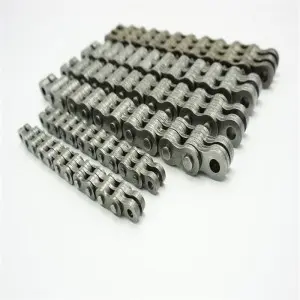In today’s globalized world, agricultural production is becoming increasingly complex, involving various stages and actors. Commodity chains play a vital role in the production and distribution of agricultural products, ensuring that they reach consumers efficiently and sustainably. From seed to supermarket, commodity chains enable the seamless flow of resources, knowledge and labor, ultimately driving growth and success in agriculture.
Define commodity chain
Commodity chains, also known as value chains, represent the entire process of creating a product, from raw materials to the final consumer. In agriculture, commodity chains encompass all the interrelated stages of production, processing, packaging and distribution of agricultural products.
The Importance of Commodity Chains in Agriculture
1. Improved efficiency and productivity: Commodity chains optimize production processes by streamlining operations and minimizing waste. From growing crops to raising livestock, every step is carefully planned and executed to maximize yield and meet market demand. This efficiency benefits both producers and consumers, ensuring a steady supply of high-quality agricultural products.
2. Quality control and food safety: The commodity chain adopts strict quality control measures at every stage of production. From seed selection to harvesting, processing, and packaging, strict monitoring and compliance with safety standards ensure that agricultural products meet regulatory requirements and provide consumers with safe and healthy choices.
3. Knowledge and technology transfer: Commodity chains allow the sharing of knowledge and technological advances at different stages of agricultural production. Farmers benefit from the latest research, best practices and innovations, improving their productivity and sustainability. In addition, the integration of technologies such as precision farming and digital data management improves efficiency and resource allocation.
4. Market access and global trade: Commodity chains facilitate the movement of agricultural products across regions and countries, enabling international trade. By connecting producers, processors, distributors and retailers, these chains provide small farmers with access to global markets, enhance their economic stability and provide consumers with a diverse choice of agricultural products.
5. Sustainable and responsible practices: Commodity chains play an important role in promoting and adopting sustainable agricultural practices. As consumers become more aware of the environmental and social impacts of their food choices, commodity chains contribute to the development and implementation of sustainable supply chains. This includes reducing waste, minimizing the use of pesticides, implementing fair trade practices and promoting responsible farming methods.
As the backbone of the agricultural industry, the commodity chain ensures the effective creation and circulation of agricultural products. From the initial cultivation of crops to packaging and shipping, every step in the chain is critical to meeting the ever-increasing demands of consumers in a globalized marketplace. Commodity chains contribute significantly to the success and development of the agricultural sector by improving efficiency, ensuring quality control, facilitating technology transfer, facilitating market access and supporting sustainable practices. Understanding and harnessing the power of commodity chains is critical to producing safe, high-quality and sustainable agricultural products.
Post time: Aug-16-2023

